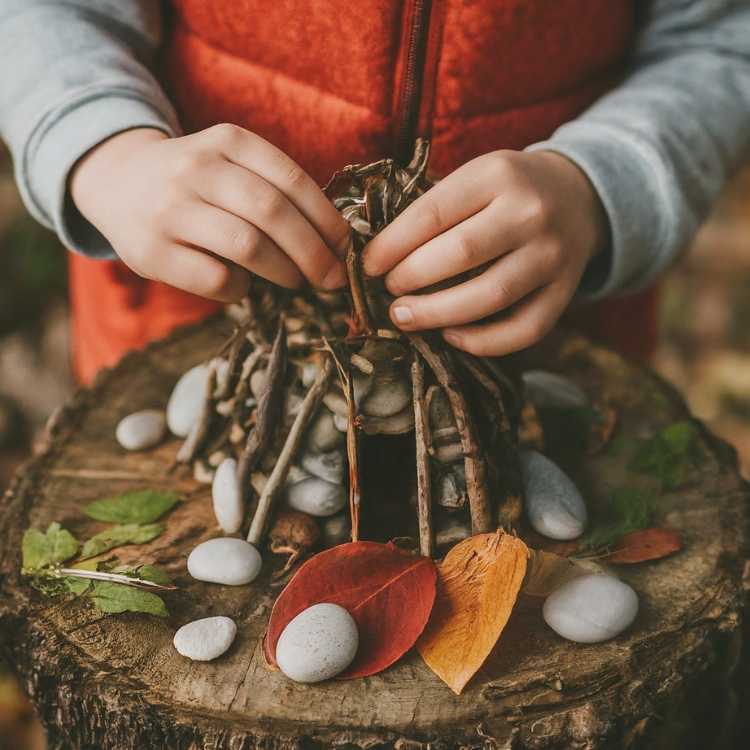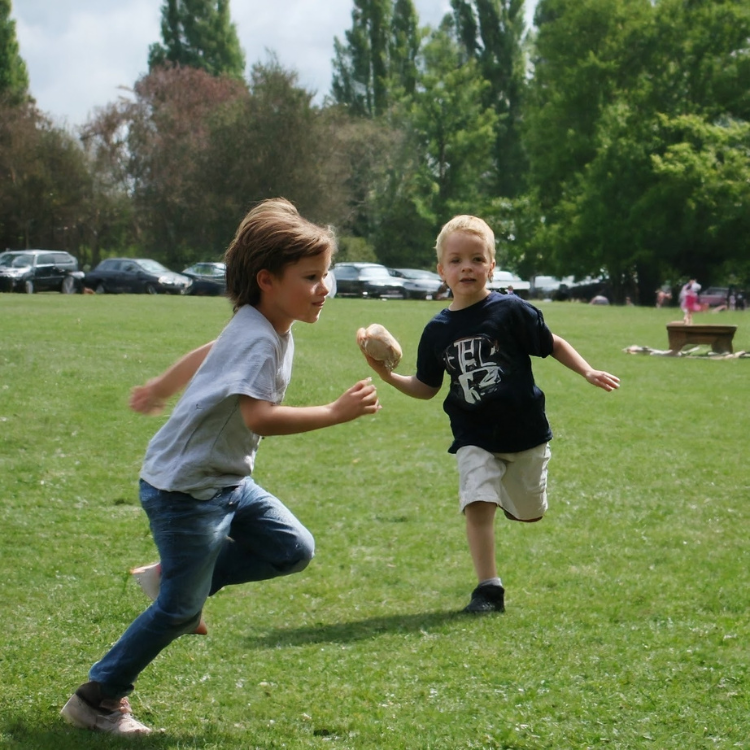The average American child spends just 4-7 minutes outdoors each day in unstructured play—a dramatic change from children just a generation ago, according to the good people over at the non-profit Children and Nature. Read on to find out why we should be concerned, and what we can do to effect change.
When it comes to children’s brain development, nature has a remarkable impact. Scientific research has shown that spending time in nature can benefit children’s cognitive function, mental health, and overall well-being. This blog post will explore the various ways that being in nature positively impacts children’s brain development, and how we can implement the findings to caregiving.
Improved Cognitive Function
Would you believe that playing a video game is less stimulating than simply being in nature? When my tween son told me that “playing video games improved” his ability to play the cello, I reluctantly acquiesced. While researching this article I was stunned to find out that being in the outdoors doing not much of anything, is far more stimulating than either of one these activities. How could this possibly be true?
According to Richard Louv, author of “Last Child in the Woods: Saving our Children from Nature-deficit Disorder,” nature stimulates far more of our senses than playing video games or a musical instrument. One of the most significant benefits of nature on children’s brain development is the improvement in cognitive function. Studies have found that exposure to natural environments enhances attention span, memory, and problem-solving abilities in children. Being in nature provides a break from the stimuli of screens and technology, allowing children’s brains to recharge and focus.
Reduced Stress
Another surprising way that nature benefits children’s brain development is reducing stress levels. Spending time in natural surroundings has been linked to lower levels of the stress hormone cortisol in children. Nature’s soothing sounds, fresh air, and peaceful environment help to calm the mind and promote relaxation. This reduction in stress has long-term positive effects on children’s mental health and contributes to their ability to self-regulate their moods.

Increased Creativity
Nature provides an ideal setting for children to unleash their creativity. When my daughter was younger she demonstrated this through building “fairy houses.” I was happy that it kept her busy, but I didn’t fully understand how beneficial it truly was. Leaves and twigs became doors and furniture. Stones and moss became entryways and roofs. Only now do I realize how it stimulated her imagination. Studies have shown that exposure to nature enhances divergent thinking, which is crucial for creative problem-solving. The thought that must go into identifying these little objects and transforming them into playthings really forced her to slow down in ways that typical kid activities don’t. Whether it’s building forts, drawing in the sand, or pretending to be explorers, nature presents a blank canvas for creative expression.
Physical Activity and Brain Development
Physical activity is not only essential for children’s physical health but also plays a vital role in brain development. Nature offers a dynamic and stimulating environment for children to engage in physical activities such as running, climbing, and exploring. These movements promote the development of motor skills, coordination, and balance, which in turn support overall brain development. Additionally, regular physical activity in nature has been linked to improved academic performance and better cognitive abilities.

Social and Emotional Development
Nature provides a rich context for social interactions and emotional development. Playing outdoors with peers allows children to learn important social skills such as cooperation, communication, and conflict resolution. The natural environment also fosters a sense of wonder, curiosity, and empathy, nurturing emotional intelligence in children. Time spent in nature encourages children to connect with their surroundings, fostering a sense of stewardship and respect for the environment.
Conclusion
Nature has a profound impact on the brain development and mental health of children. From improved cognitive function and reduced stress to increased creativity and social-emotional development, the benefits of being in nature are extensive. As parents, educators, and caregivers, it is crucial to prioritize and encourage children’s access to the natural world. By doing so, we can support their overall well-being and set them on a path to lifelong learning and growth.




